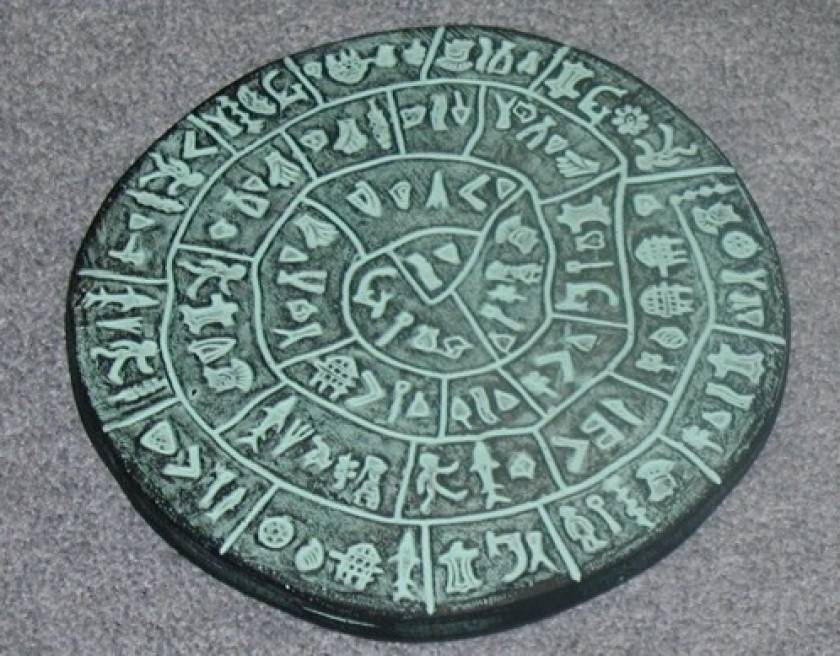Ιntriguing Phaistos Disk a tribute to Minoan Crete's mother-goddess, professor claims

The Phaistos Disk, whose decoding has puzzled specialists for over a century, is a prayer to a mother, according to Gareth Owens, Erasmus coordinator at the Technological Educational Institute (TEI) of Crete who was speaking at the TEI of Western Macedonia on Monday.
What he described as "the first Minoan CD-ROM," the disk was discovered in 1908 at the palace of Phaistos, in the northeastern part of the Aegean Island of Crete.
The round clay object, tentatively dated close to 1700 B.C., displays an unknown language on both sides which is carved in a circular fashion, from outside to the centre. According to Dr. Owens, there is one complex of signs found in three parts of one side of the disk spelling I-QE-KU-RJA (YGEIAN + AGAPI), with I-QE meaning "great lady of importance" while a key word appears to be AKKA, or "pregnant mother," according to the researcher. One side is devoted to a pregnant woman and the other to a woman giving birth, he said.
"The most stable word and value is 'mother'," and in particular the mother-goddess of the Minoan era, to whom the disk is dedicated, Owens said.
More information is available on the institution's web site (www.teicrete.gr/daidalika). According to the site, there are a total of 242 signs on both sides of the disk, based on 45 different signs, "too many for them to constitute an alphabet and too few for them to constitute a truly ideographic script, as is the case with Chinese."













